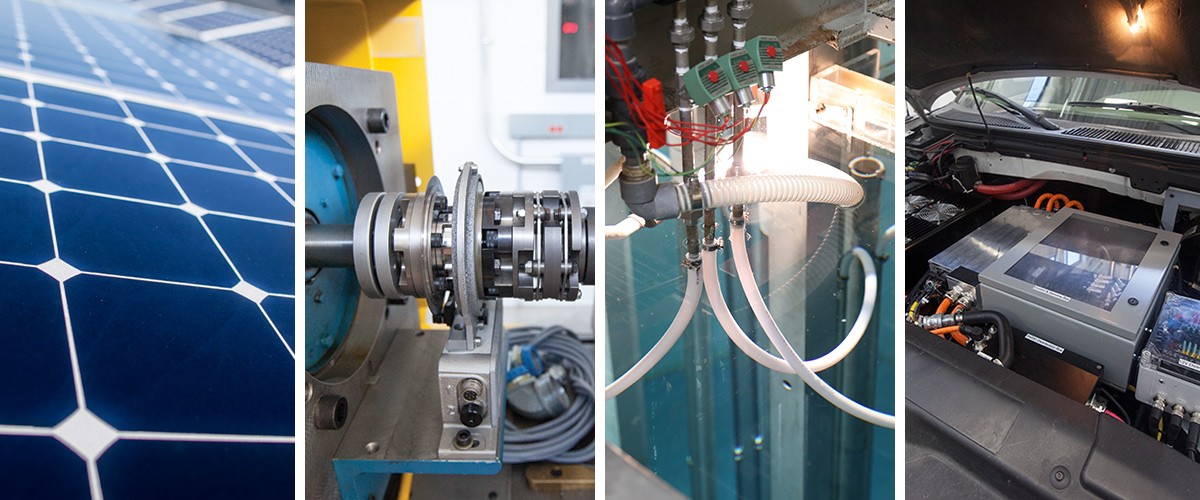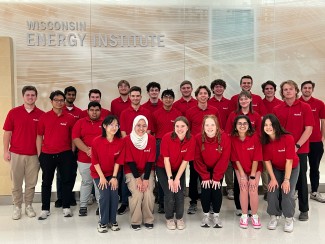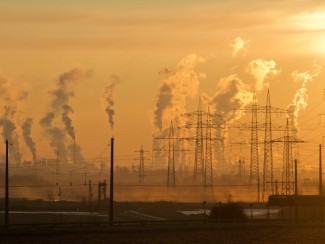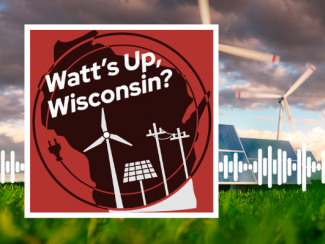
In the U.S., electricity generation is responsible for about 34 percent of our total carbon emissions. And our electrical power plants, which run primarily on high-emissions energy sources such as coal, provide a staggering 39 percent of our total energy.
To reduce global greenhouse gas emissions while continuing to power our everyday lives, we need to transition to a cleaner, more reliable, and more resilient electricity system. At the Wisconsin Energy Institute (WEI), we bring together some of the nation’s best scientists and engineers to develop renewable energy systems and architectures that will support a smarter energy grid. In electricity systems, our researchers focus on:
- Electricity sources and generation, including solar thermal and photovoltaics, concentrating solar power, advanced nuclear, wind generation, advanced power conversion systems, and more;
- Heating and cooling;
- Energy storage systems; and
- Electricity distribution architectures
WEI researchers also consider sustainability issues, the health impacts of electricity generation, and access to electricity in developing countries.
Across all areas of our electricity systems research, we seek out creative partnerships with industry leaders and other critical stakeholders, focusing on transformative research with a place and a purpose in the marketplace and in the world.





